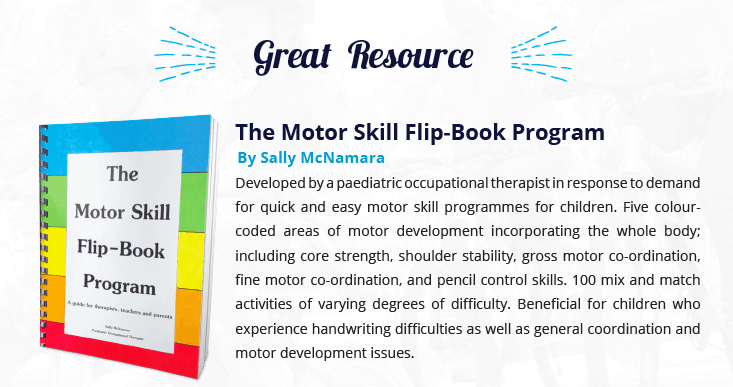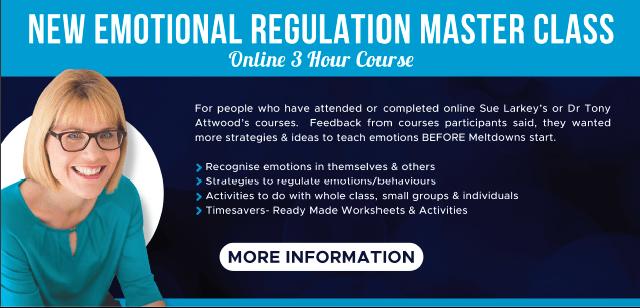HOW TO SUPPORT MOTOR SKILLS FOR STUDENTS WITH AUTISM
A WHOLE BODY APPROACH By Sally McNamara (OT)
As an occupational therapist I am often asked for ideas on how to support or ‘fix’ a specific motor skill in a student with autism. For example, a student might hold their pencil incorrectly, have difficulty riding a bike or be unable to dress independently. Students with autism often have motor difficulties, this is where I highly recommend using a whole body approach.
While most people hope there is a quick solution to the problem the truth is that each motor skill involves a series of complex connections between many different parts of the brain and body. As a consequence the development of each motor skill requires consideration of the whole body and how it works together.
So while fine motor skills are still important for students with autism who have fine motor delays, only focusing on exposing the child to more fine motor activities will mean that the child is unlikely to make as much progress as the one who has been encouraged to participate in activities that support the development of the body as a whole.
Understanding Motor Skills Development
(and why it is important)
As humans we develop our motor skills in a certain pattern; from the head-down and the inside-out. In other words we gain control of our upper body before our lower body, and we develop control and strength in our trunk (core) before our limbs.
This understanding of how the body develops is very important as it means that if we want to improve fine motor skills (e.g. for activities like hand-writing, cutting, using utensils etc) then we have to start by working backwards. This involves looking closely at important areas of motor development such as gross motor coordination, the stability of the shoulder and the body’s core strength.
A student cannot have distal control without proximal stability.
- What this means is that if a student’s core muscles are weak, if their shoulder joint is unstable and/or if they have difficulty with larger (gross) movements then they will inevitably struggle with their fine motor control.

Identifying Reduced Motor Skills in Students with Autism
If you know a student with autism who finds certain motor skills challenging then it is important to look at all aspects of their motor development and determine how other factors might be influencing the body as a whole. While most issues with pencil control and fine motor coordination are typically easy to identify, gross motor coordination difficulties, reduced shoulder stability and poor core strength can be harder to pick up. The whole approach considers:




This programme is fantastic as it solves motor issues with quick fun activities. You can give this book to parents/carers or support staff to follow. It has GREAT timesavers that use a whole body approach to developing motor skills in students with autism. I love the way it is divided into the whole body activities and covers five key motor skill areas – core strength, shoulder stability, gross motor coordination, fine motor coordination and pencil control. I also love that each of the 100 activities can be mixed and matched quickly and easily for the child to follow during each session.
Want to learn more?



 Sorry we no longer ship items outside Australia. Please consider the digital versions of Sue’s Books –
Sorry we no longer ship items outside Australia. Please consider the digital versions of Sue’s Books – 